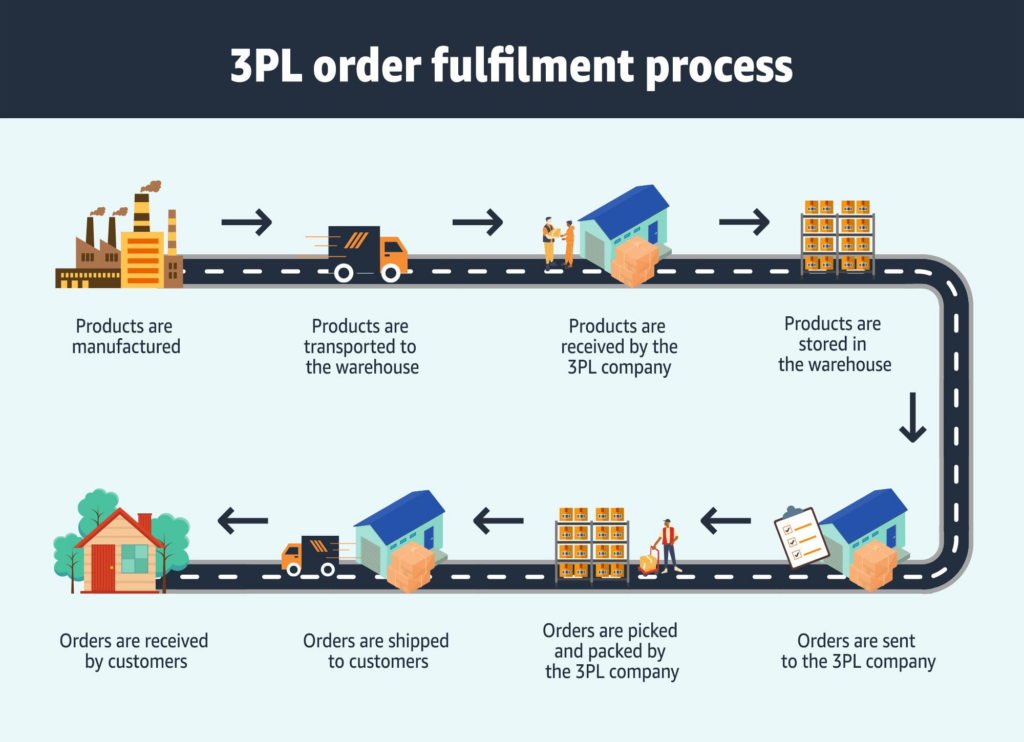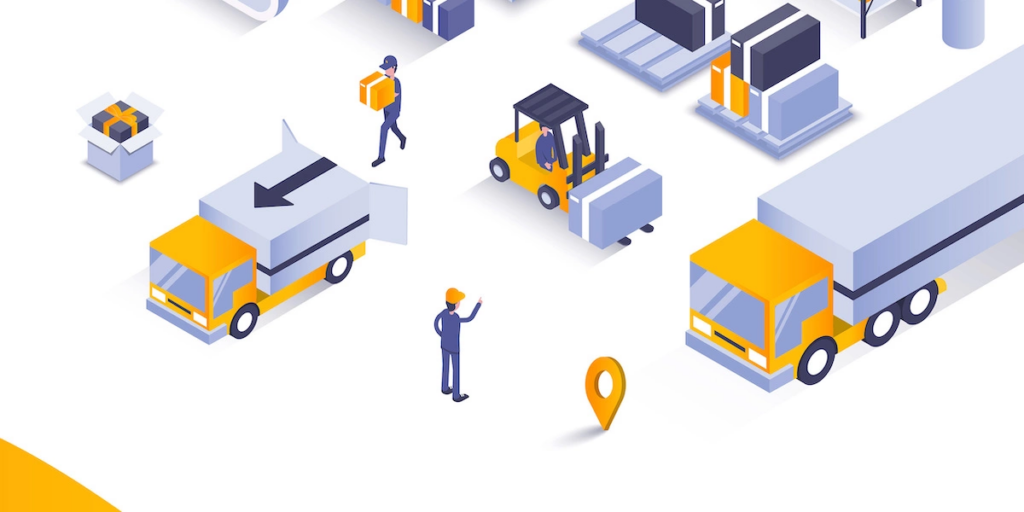
In the ever-expanding world of supply chain management, businesses are increasingly turning to specialized logistics services to streamline their operations and meet the growing demands of a global marketplace. One such prominent solution that has gained significant traction is Third-Party Logistics (3PL). Whether you’re a business owner seeking to optimize your distribution network or a curious individual eager to understand the intricacies of modern logistics, this comprehensive guide has got you covered.
In this article, we delve into the realm of Third-Party Logistics, exploring all the essential aspects you need to know. From understanding the fundamental concept of 3PL to unraveling its various services, advantages, and potential challenges, we embark on a journey to demystify this integral element of contemporary supply chain management.
What are third-party logistics (3PLs)?

Third-Party Logistics (3PLs) refers to companies that provide outsourced logistics and supply chain management services to businesses. These specialized service providers take on the responsibility of managing various aspects of the supply chain on behalf of their clients, offering a range of services that can include transportation, warehousing, inventory management, order fulfillment, packaging, and distribution.
In a 3PL arrangement, businesses outsource certain or all logistics functions to a third-party provider, allowing them to focus on their core competencies and leave the complexities of logistics to experts. 3PLs typically have extensive networks, expertise, and resources in transportation, distribution, and warehousing, making them well-equipped to handle the complexities of modern supply chains.
The 3PL order fulfilment process

The 3PL order fulfillment process involves several steps that 3PL providers follow to ensure efficient and accurate order processing and delivery.
Here are the five main steps of the 3PL order fulfillment process:
Order Receipt and Processing
The process begins when the 3PL receives order information from the client’s sales channels, such as online stores or marketplaces. The order includes details such as product SKU, quantity, shipping address, and any special instructions. The 3PL’s order management system processes the order and assigns it a unique order number for tracking purposes.
Inventory Retrieval and Packing
Once the order is processed, the 3PL staff retrieves the items from the warehouse shelves based on the order details. They use various picking methods, such as batch picking or zone picking, to efficiently gather the required items. After picking, the products are carefully packed, ensuring they are adequately protected during transportation.
Shipping and Carrier Selection
With the items packed and ready for delivery, the 3PL selects the appropriate shipping carrier based on the customer’s chosen shipping method (e.g., standard, expedited, or express). The 3PL’s shipping software generates shipping labels and tracking numbers. The shipping carrier then collects the packages from the 3PL’s facility for delivery to the customers’ addresses.
Order Tracking and Updates
Throughout the order fulfillment process, the 3PL’s system updates the order status and tracking information in real-time. Customers receive automated notifications with shipping and tracking details, allowing them to monitor the progress of their orders until delivery. This transparency provides customers with a positive experience and reduces inquiries to customer support.
Returns Management
In the event of returns or product exchanges, the 3PL manages the returns process on behalf of the client. They receive returned items, inspect their condition, and either restock them or process replacements as per the client’s return policy. Efficient returns management is crucial for maintaining customer satisfaction and handling any issues that may arise.
Benefits of third-party logistics (3PLs)

Third-Party Logistics (3PLs) offer several significant benefits for businesses seeking to enhance their supply chain operations and improve overall efficiency. Here are five key advantages of using third-party logistics services:
Cost Savings
One of the primary benefits of 3PLs is cost savings. By outsourcing logistics functions to specialized providers, businesses can avoid significant capital investments in infrastructure, transportation, and warehousing. 3PLs can leverage their existing networks and resources to provide cost-effective solutions, reducing overall logistics expenses.
Access to Expertise and Resources
3PLs are experts in the field of logistics and supply chain management. They have a deep understanding of industry best practices and access to advanced technologies and systems. Businesses that partner with 3PLs can tap into this expertise and leverage their resources to optimize their supply chain processes and stay updated with the latest industry trends.
Scalability and Flexibility
3PLs offer scalable solutions that can adapt to changing business needs. As businesses experience fluctuations in demand or enter new markets, 3PLs can quickly adjust their services to accommodate these changes. This flexibility allows businesses to focus on their core competencies while ensuring their logistics operations remain efficient and responsive.
Improved Focus on Core Competencies
By entrusting logistics functions to 3PLs, businesses can redirect their attention and resources to their core competencies. This increased focus on core activities, such as product development and marketing, can lead to enhanced innovation, improved customer experiences, and ultimately, increased competitiveness in the market.
Global Reach and Market Expansion
For businesses looking to expand their market presence globally, 3PLs provide valuable support in navigating international logistics challenges. With their expertise in customs regulations, documentation, and cross-border transportation, 3PLs facilitate the smooth movement of goods across borders, enabling businesses to reach new customers and markets worldwide.
3PL vs. 4PL: What’s the difference?

They are both logistics service providers, but they differ in their scope of services and levels of involvement in the supply chain.
Third-Party Logistics (3PL)
3PLs are external companies that businesses partner with to outsource specific logistics functions or services. These providers offer a range of services, such as transportation, warehousing, order fulfillment, and distribution. Businesses collaborate with 3PLs to handle specific aspects of their supply chain, often seeking cost savings and expertise in those particular areas.
Key characteristics of 3PLs:
- Provide specialized logistics services based on businesses’ specific needs.
- Generally focus on executing logistics tasks and operations.
- Often use their established networks and resources to handle transportation and warehousing.
- Act as intermediaries between businesses and carriers, coordinating freight movement.
Fourth-Party Logistics (4PL)
4PLs, on the other hand, take a more strategic and holistic approach to supply chain management. They are external consultants or organizations that oversee and optimize the entire supply chain of a business. 4PLs serve as integrators, coordinating and managing multiple 3PLs and other logistics service providers on behalf of the client.
Key characteristics of 4PLs:
- Act as single points of contact for businesses, managing the entire supply chain on their behalf.
- Oversee and coordinate multiple 3PLs and other logistics partners to ensure seamless operations.
- Focus on strategic planning, optimizing processes, and enhancing supply chain efficiency.
- Use advanced technologies and data analytics to provide end-to-end visibility and continuous improvement.
In summary, the main difference between 3PL and 4PL lies in their level of involvement and scope of services. 3PLs offer specialized logistics services and handle specific functions within the supply chain. In contrast, 4PLs take a more comprehensive and strategic role, managing the entire supply chain and coordinating various logistics service providers to achieve seamless operations and optimize overall performance.
In conclusion, third-party logistics services offer a range of benefits, including cost savings, access to expertise and resources, scalability, improved focus on core competencies, and the ability to expand into new markets. By partnering with 3PLs, businesses can enhance their supply chain efficiency, improve customer satisfaction, and position themselves for success in today’s highly competitive business landscape.